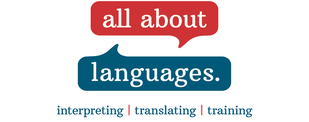|
By Patricia Jaworski The Challenges Interpreters Face Interpreting is one of the main components of language services, but with that comes many challenges. Whether the interpreting is done over the phone, via video or in-person and if it’s for healthcare, business, or legal purposes, new and experienced interpreters are likely to face many challenges every once in a while. Difficulty Hearing the Speaker This is one of the most cumbersome challenges and the situation can develop from only two things. One, which can be fixed- the audio equipment is not working properly, and two, a problem with the individual speaker. While audio malfunctions can easily be rectified, a problem with the individual speaker cannot be fixed right away. These problems can be –
Cultural Awareness Being an interpreter is very demanding. Aside from having a high level of proficiency in the source and target languages, they must be highly knowledgeable of the culture of different countries. You might be knowledgeable, but what if your speaker does not know the language they are speaking in, that well? Or, they know it but are not pronouncing words correctly or the way you studied? While this may occur more often that it should, the interpreter has to know the differences in how the language is spoken by people from different regions. Speakers will often use local idioms, slang and jargon, so it is very important for an interpreter to be aware of these otherwise the job will not be done effectively. Interpreters rely not only in their excellent language proficiency but also in their vast knowledge of a different cultures, the cultural connotations of the words spoken, and how the language is expressed in a different culture. if an interpreter is not entirely knowledgeable in the language, culture or different slangs they should not be interpreting for that specific job. Interpreters act as a conduit for intercultural communications. It is important to not only interpret the words, but to deliver the source language in the tone of voice that reflects how it sounds in the target language and transfer the intended meaning of the message. It is challenging, but interpreters must be quite flexible yet quick in making decisions right on the spot. What type of interpreting is it? This can play a huge factor when interpreting. Whether it is Video Remote Interpreting, or in-person, it is important to know what to do when interpreting in that specific industry. When working in healthcare, the interpreters must be knowledgeable, somewhat on the topic. For legal assignments, do not change anything as this can lead to many issues. Conclusion Interpreters must come to the conclusion themselves if they can or cannot do their job effectively. As part of the Code of Ethics of the Australian Institute of Interpreters and Translators (AUSIT) the principle around competence stresses this rule. If you cannot hear the speaker, understand the language they are speaking in, or know what to do in a certain industry situation you will not be able to interpret successfully.
5 Comments
|
Archives
May 2021
|
hours24 hours | 365 days
|
telephone03 6344 7831
|
|


 RSS Feed
RSS Feed

